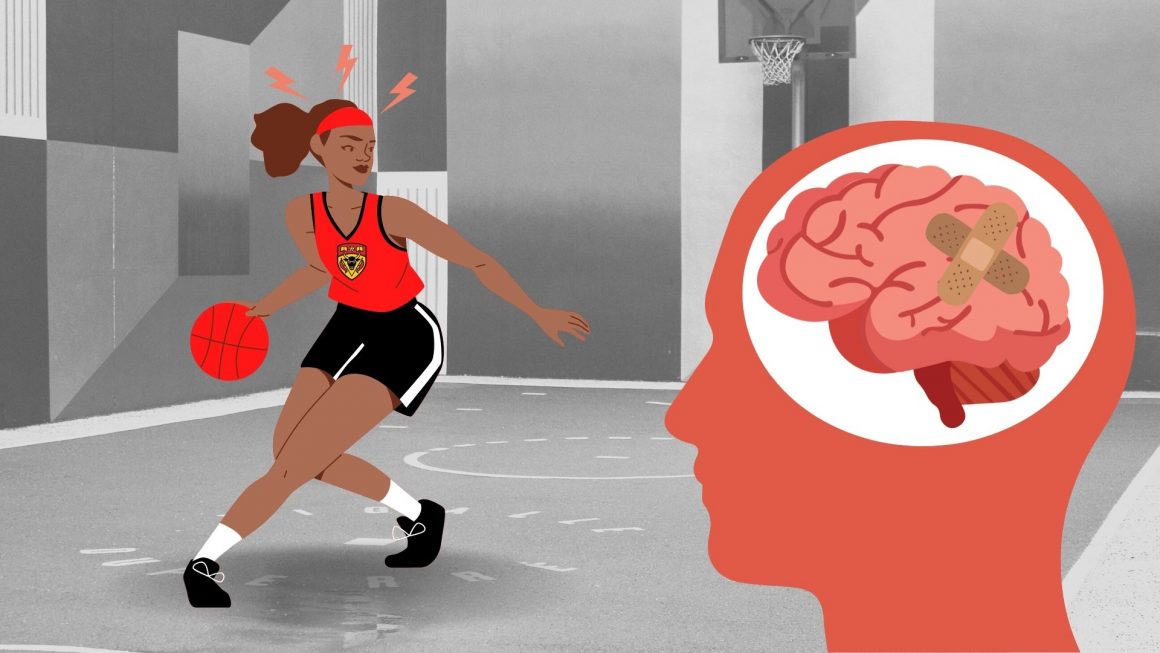
Dr. Carolyn Emery discusses concussion research at the University of Calgary
By Mackenzie McManus, December 8 2021—
As one of the best sports science school in North America based on ShanghaiRanking’s Global Ranking of Sport Science Schools and Departments, the University of Calgary studies a wide range of factors influencing physical health. Included in these are sports-related concussions.
According to a recent study performed by researchers at the University of Calgary, 1 in 9 Alberta youth experience a concussion caused by sport each year and leave much more significant impacts than the floating birds and stars around our heads as cartoons lead us to believe. Instead, a concussion is when the brain contacts the inside of the skull due to a jarring movement. This contact causes damage to the cells within the brain and can result in symptoms such as dizziness, headache, mood changes and light and auditory sensitivity.
Dr. Carolyn Emery, an epidemiologist at the University of Calgary, described how these symptoms can be long-lasting in up to 30 per cent of athletes experiencing a concussion, ultimately inhibiting athletes from returning to play. By not returning to sport, the future health of young athletes is at risk. Specifically, “Consequences which may relate to reduced levels of physical activity across their lifetime may lead to obesity and other chronic health problems,” said Emery.
While working as a physiotherapist in pediatric rehabilitation before receiving her Ph.D., Emery witnessed long-term concussion symptoms in patients — which can include continued dizziness and headaches, as well as trouble remembering and focusing on tasks — and was motivated to take action.
“I was seeing so many kids –— and very young kids — coming into the hospital following pretty significant injuries occurring in sport,” said Emery. “A lot of kids were suffering from concussions and while it is typical that the symptoms resolved within a month, we were seeing lots of kids who were having long-term problems following their concussions and I felt that there was so much to do.”
Today, Emery is a major contributor to the University of Calgary’s involvement in concussion research as leader of the Surveillance in High School to Reduce Concussions and Consequences of Concussions in Canadian Youth Concussions program (SHRed). Funded by the NFL Scientific Advisory Board, Emery explained that this program operates across five provinces and places great emphasis on concussion detection, diagnosis, prognosis and treatment. SHRed Concussions also includes a surveillance program that encourages a deeper understanding of concussion risk factors and prevention strategies.
Just as Batman has a Batmobile, Emery and her team have a set of wheels to aid them in their work — the SHRed Mobile. A long bus containing equipment and a newly implemented lab, the SHRed Mobile makes it possible to bring the program goals of determining concussion risk, detection and prevention to communities. Additionally, the SHRed Mobile allows the program to bring “workshops and some of the clinical elements of our program out to rural communities and work more closely with our Indigenous community partners in establishing priorities around concussions and prevention and treatment,” said Emery.
Concussion research is not effective if it stays within the lab. It must reach the individuals it impacts, including athletes, parents, doctors and amateur athletic associations. Many community sporting organizations have already implemented concussion protocols and safety measures, and as pointed out by Emery. An increasing number of concussions in famous athletes, for instance, NHL star Sidney Crosby, as well as former NFL quarterback and Hall of Famer Steve Young, have raised awareness in the public about the occurrence and severity of concussions.
The University of Calgary has taken community awareness of concussions a step further by developing the Massive Open Online Concussion (MOOC) course in partnership with the Université Laval. Led by Kathryn Schneider, a colleague of Emery’s, this program is an online course that makes concussion information easily accessible to all interested in learning more about concussions and is therefore capable of spreading concussion awareness to large numbers of the population.
Finally, direct help is available to students and other members of the public with sports-related concussions through the Acute Sport Concussion Clinic located in the Sports Medicine Centre at the University of Calgary. Through filling out an appointment application form, patients will have access to a team of physiotherapists and physicians that will work with patients in understanding and treating the concussion injury.
In all, the impact of concussions on the future lives of athletes can be frightening. But the answer is not to stop playing sports. Instead, research such as that at the University of Calgary is providing improved understanding on diagnosis, prevention and treatment that can keep youth active for years to come.
